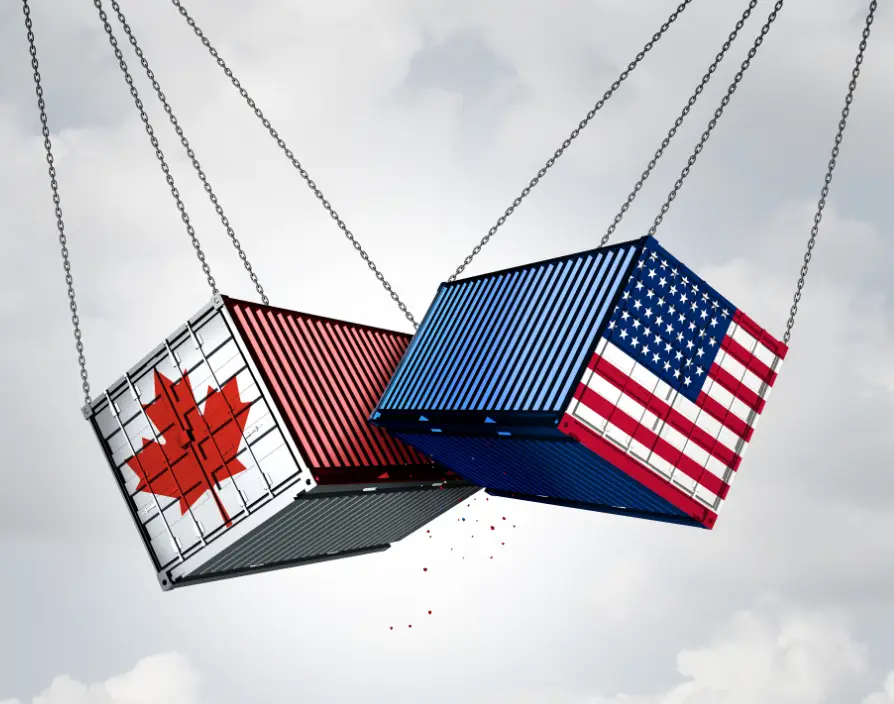The looming threat of U.S. tariffs on Canadian imports—and Canada’s retaliatory measures has cast uncertainty over cross-border commerce, with franchises uniquely vulnerable due to integrated supply chains and standardized operating models. From a legal perspective, Canadian franchises must navigate evolving trade policies, contractual obligations, and provincial countermeasures to mitigate financial and operational risks.
Legal framework of tariffs
Under the U.S. International Emergency Economic Powers Act (IEEPA), President Trump could unilaterally impose tariffs by declaring a “national emergency,” bypassing traditional trade agreement safeguards like CUSMA. In Canada, the Customs Tariff empowers Cabinet to levy surtaxes on U.S. goods, administered by the Canada Border Services Agency (CBSA). For franchises, this dual regulatory landscape complicates cost forecasting, as duties compound with GST and provincial taxes, potentially inflating import expenses by over 30%. Franchisors must assess whether tariffs apply to their goods and if franchisees or U.S. partners bear liability as importers of record.
Contractual vulnerabilities
Franchise agreements often lack robust clauses addressing tariff-driven cost surges. Many contracts assign duty payment to importers without mechanisms for renegotiation, risking disputes between franchisors and franchisees. Proactively reviewing “change of law” provisions, tax liability allocation, and price adjustment rights is critical. For example, automotive or retail franchises reliant on U.S.-made components could face margin erosion if contracts fail to permit cost-sharing. Legal counsel should guide renegotiations or explore insurance products to hedge against sudden cost spikes.
Supply chain and tax mitigation
Tariffs disrupt just-in-time inventory systems common in franchising. Legally verifying product origins and diversifying suppliers outside the U.S. may reduce exposure. For instance, a restaurant franchise sourcing U.S. dairy could pivot to EU suppliers, provided origin documentation meets CBSA standards. Tax strategies, such as deducting tariffs as cost-of-goods-sold expenses or capitalizing them into asset amortization, require precise compliance to avoid disputes with the CRA.
Provincial retaliation and sector-specific impacts
Provincial countermeasures, like Ontario’s ban on U.S. alcohol sales, directly affect franchises in hospitality and retail. Liquor franchises face immediate revenue losses, while procurement restrictions could delay construction or service sectors reliant on U.S. contractors. Legal challenges may arise if provincial measures conflict with federal trade policy or existing supplier contracts.
Advocacy and exemptions
Canadian franchises should engage in federal consultations on retaliatory tariff lists, advocating for exemptions on essential imports. The remission process offers limited relief for inputs with no domestic alternatives, but applications demand evidence of economic harm. Collaborating with industry groups amplifies influence, while cross-border lobbying with U.S. partners may soften policy outcomes.
In this volatile climate, Canadian franchises must act swiftly: auditing contracts, recalibrating supply chains, and leveraging tax and legal tools to insulate against tariffs. Strategic legal planning, not just operational adjustments, will define resilience in a fractured trade landscape.
Always consult a lawyer and accountant familiar with Ontario franchise law before finalizing any transaction. This article is for informational purposes only and does not constitute legal advice.








